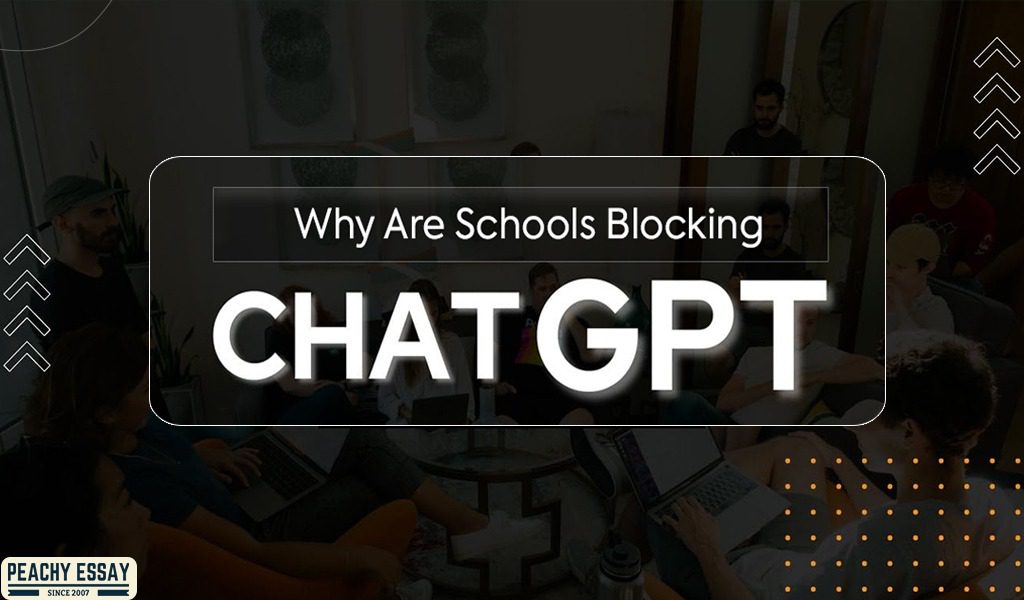ChatGPT is an AI-powered chatbot that has been taking the world by storm since its introduction in late 2022. Given the purportedly large number of things it can do, you may be wondering why students not use ChatGPT and why universities are blocking its use.
Using ChatGPT in your college coursework is plagiarism. It’s also something you will easily get caught doing and expelled for. Using AI in general for your work also encourages bad habits. Read on to learn why ChatGPT is bad for schools.
Why Students Not to Use ChatGPT
Shortly after ChatGPT’s launch, a number of students quickly discovered that it could generate seemingly convincing-looking essays. These students then started using ChatGPT to do their college coursework for them.
Unfortunately for them, universities quickly caught on and began explicitly banning the use of AI for writing papers, considering it plagiarism. In 2023 alone, over 25 universities in the U.S. have expelled students for using ChatGPT or other AI programs to write essays.
You might think that you can slip a ChatGPT-generated essay past your professor. Think again. Despite the advances that AI has made in the past few years, AI-generated text is easily detected by software. This is because ChatGPT-created essays are generated in a predictable manner, using phrases and words in a repetitive manner that software has already been trained to detect.
Not only that, because ChatGPT composes essays based on content it takes from the Internet, existing plagiarism detection software such as Turnitin already flags ChatGPT-written work as unoriginal. Even if your AI-written essay isn’t explicitly identified as such, you’ll still get in trouble for turning in plagiarized work.
Disadvantages of Chatbot in Education
There are a number of potential applications for AI in the educational field. However, using ChatGPT to write college essays is not one of them for a number of reasons.
Beyond the reasons mentioned above, ChatGPT is factually unreliable. As acknowledged by OpenAI, ChatGPT suffers from a phenomenon known as “hallucinations.” This is where ChatGPT will present untrue information as factual, even if it has access to the correct information.
“Hallucinations” are one of the easiest ways to detect AI-written work. If you try to pass off a ChatGPT-generated essay as your own that’s full of blatant falsehoods, your professor will instantly know what you did, particularly since ChatGPT won’t tell you if it doesn’t know the answer to the question you’re asking.
Another problem with ChatGPT is that its data set only incorporates information up to mid-2021. This means it can’t answer questions or generate essays based on anything newer than that, opening up yet another avenue by which you can be caught if you attempt to submit AI-created work.
Will ChatGPT Affect Education?
Professors, deans, and other experts are naturally concerned about the effects that AI-driven plagiarism could have on the quality of education and have already implemented new policies and tools to combat the use of ChatGPT and other similar programs.
In addition to the aforementioned issues, ChatGPT allows students to find answers to questions without putting in the effort to understand the underlying concepts. As a result, students become overly reliant on AI-generated responses, which hampers the development of their critical thinking skills.
Why ChatGPT is Bad for Schools?
The use of ChatGPT has the potential to undermine the role of teachers and professors. While AI may prove useful as a supplementary tool, it cannot replace the human touch and expertise that teachers bring to the classroom.
Because of this and other reasons, numerous universities and colleges have implemented strict bans on using AI since the release of ChatGPT, and professors have begun using AI detection software as part of their grading process.
If you think you can use ChatGPT to save time on your university work, you’re taking a huge risk. Between the increasing use of AI detection software, the ability of existing plagiarism software like Turnitin to flag ChatGPT-written essays, and zero-tolerance policies for the use of AI, you risk being expelled like countless other students already have. Is it really worth it?
Alternatives to ChatGPT
If you need help with your college coursework, there is a far more reliable and trustworthy option: hiring a ghostwriter.
College ghostwriters are able to assist you in any subject you need help with because they are experts in their chosen field. They are professional authors who create quality work backed up with academic citations and meeting all university requirements.
Unlike AI programs, which merely scrape and synthesize content from the Internet without any context, a college ghostwriter can write a paper for you based on their own knowledge and research, one that is plagiarism-free. There’s also no risk of “hallucinations” since ghostwriters know what they’re talking about.
College students have relied on ghostwriters for decades because they’re a proven way of getting assistance with difficult subjects.
ChatGPT and Education: The Bottom Line
ChatGPT is an interesting tool with a lot of applications, and it’s clear that AI will have a greater role in our lives in the coming years. However, using AI to do your college coursework for you is a really bad idea for countless reasons.
While some students may have been able to slip AI-written essays past their professors when ChatGPT first launched, universities are now hip to what’s going on. New AI-detection tools, existing plagiarism detection suites, and zero-tolerance policies for AI use all but ensure you will receive a failing grade for your ChatGPT-written essay at best or expelled at worse.
If you need help with your college essays, we recommend hiring a ghostwriter link peachy essay instead. Ghostwriters produce high-quality, expert-level work, and unlike ChatGPT, there’s no risk of being caught.


